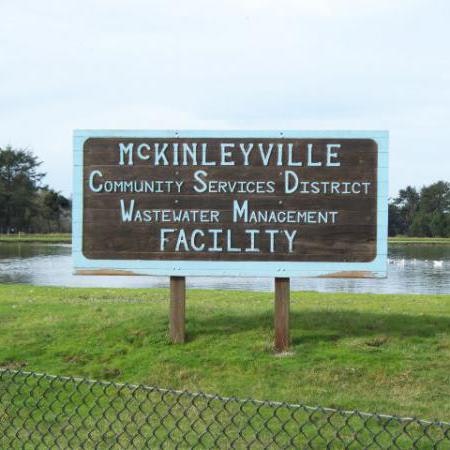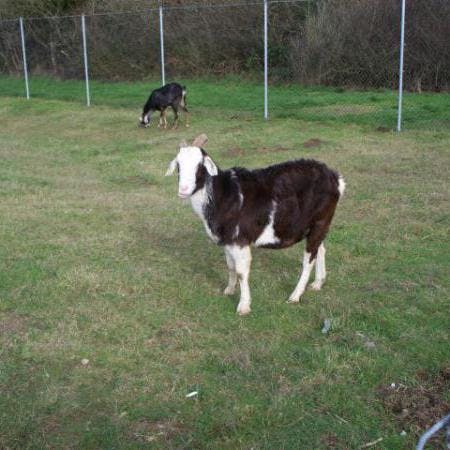Wastewater Management Facility

The McKinleyville Wastewater Management Facilities are located on a 68.4 acre parcel, with approximately 34 acres presently being used for the treatment facilities, an 18 acre wooded buffer, and 16 acre open parcel to the south. In addition, there is a public access nature trail contained within the wooded buffer zone that is 1.5 miles long.
The wastewater management facilities consist of two primary oxidation ponds (11.2 acres), two secondary oxidation ponds (5.5 acres), two finishing treatment marshes (5.6 acres), and has a total pond area of 22.3 acres. Biological treatment capacity of the ponds is 1.18 mgd (1,180,000 gallons per day) and hydraulic capacity of disinfection facilities (chlorine contact chamber) is estimated at 3.3 mgd (2300 gpm) peak flow.
Treated wastewater is discharged to the Mad River during winter months when the river flow rate surpasses 200 cfs (cubic feet per second). During summer months (May 15 through September 30) and low flow periods of the Mad River, treated wastewater is discharged into two percolation ponds located adjacent to the river and is irrigated on dairy pastures in southwest McKinleyville. The irrigated areas include 70 acres of the Fischer Irrigation Site (at the corner of Fischer Road and School Road) and 28 acres at Hiller Park (east of the Wastewater Management Facility and north of the Hiller Sports Complex).
Wastewater Treatment Plant Upgrade
The District completed a 20 Year Wastewater Facilities Plan in January 2012. The Wastewater Facilities Plan identified a series of upgrades to the District’s existing wastewater treatment plant including portions of the effluent disposal system.
The improvements will address the needs for the facility through the year 2030.
The District's Wastewater Facilities Plan (Facilities Plan) finalized in January 2012, presented several treatment alternatives and recommended replacing the existing facultative lagoon system with an in-basin extended aeration system. Subsequently, two manufacturers of in-basin extended aeration systems, Bioworks and Parkson, have been chosen as the preferred vendors for the extended aeration system.
The major proposed WWMF improvements include a new headworks facility; aeration basins; a blower/electrical/maintenance building; two new secondary clarifiers, including return activated sludge/waste activated sludge (RAS/WAS) pumping; and a biosolids storage basin.
The preliminary design cost estimate indicates the bid price to be approximately $13.2M.


